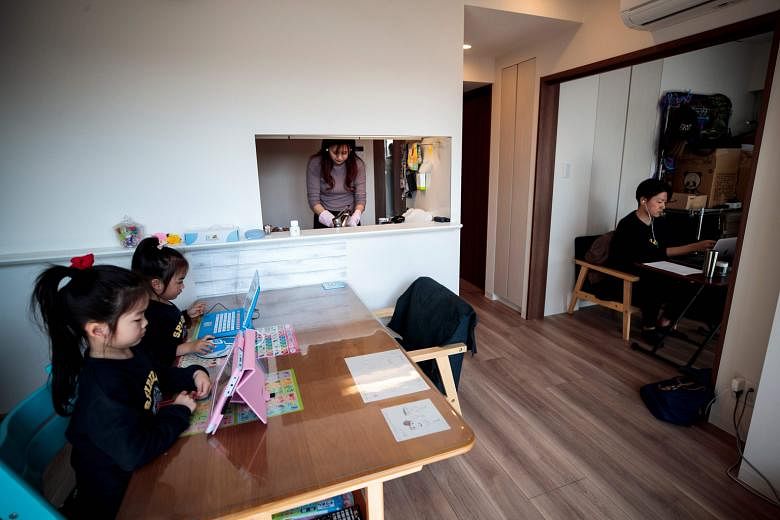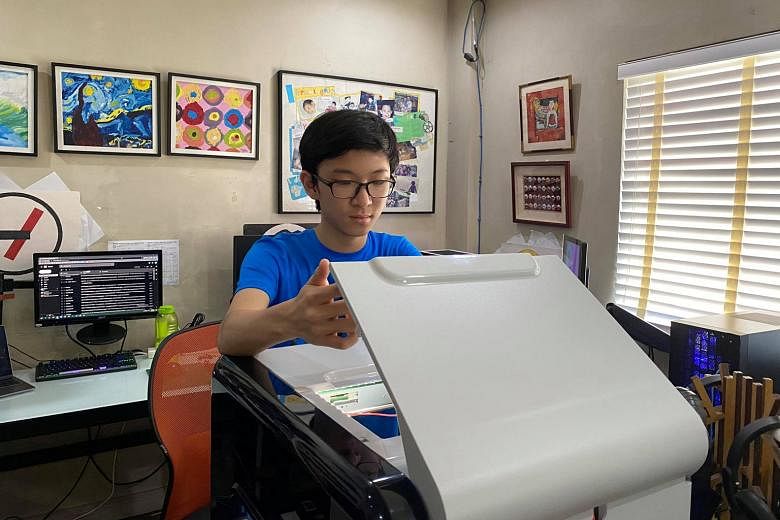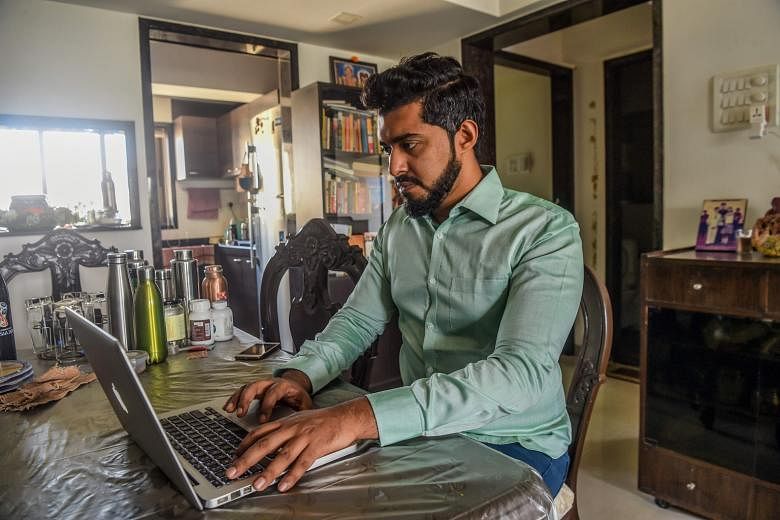Many companies in Asia are slowly sending their employees back to the office as the world reopens.
But with global coronavirus infections soaring past seven million and still rising, working remotely will continue to be a facet in the region.
Most firms are resorting to flexible work schedules so that at least half their employees can remain working from home while the rest can return to the office. The goal is to avoid densely packed work spaces that facilitate viral spread.
Staff will certainly return to the office once the pandemic eases.
While a massive shift to working from home has helped firms stay afloat and sparked a rethinking of the way offices can be run, the consensus is that not everyone can pivot to a home-run office and still remain efficient.
"It is possible to do it during a pandemic, but not for prolonged periods," said Mr Timboel Siregar, secretary-general of the Indonesian Workers' Organisation (Opsi).
Working remotely is fine for the IT and services sectors, said the Philippines' acting economic planning secretary Karl Chua, adding: "But you can't expect factory workers, waiters and drivers to work from home."
Yet, even for those where every part of work can be done remotely, there is some hesitation.
A survey by a Nikkei unit showed that while up to 88 per cent of Japan's large corporations have adopted telework, only 46 per cent of small and medium-sized firms had done so by mid-April.
A South Korean study found that only 40 per cent of firms were willing to let staff work from home.
Most employees have returned to the workplace but companies still allow those who need to work from home to do so.
The infrastructure in countries like Indonesia and the Philippines simply cannot support a wholesale shift to working from home, given patchy phone signals and often unreliable Internet.
Work culture among Asians also leans towards in-person connections, so the urge to leave home is always compelling.
"The communal culture in Indonesia means people prefer to work together as a team rather than alone," said Opsi's Mr Siregar.
Ms Kang Da-som, 31, who works at South Korean telecoms giant KT Corporation, said that while she feels safer working from home, she would still rather go to the office if she has to meet or talk to someone.
In China, most seem to have already abandoned the "great work from home experiment" and are back in the office, though some companies, like ride-hailing firm DiDi, have allowed more flexible arrangements such as telecommuting for part of the work week.
WORK-HOME IMBALANCE
Life at home in a lockdown is also much harder than usual.
Those who live alone complain of the emotional grind from the enforced isolation, while people with children find it doubly exhausting to juggle childcare, homeschooling and their jobs.
It is especially hard on women.
"For a lot of women, going to work was the only time (they have) for themselves... Work from home erased all boundaries," said Ms Aarti Desikan, director of Anand Rathi Financial Services, a wealth advisory firm in Bangalore, India.
She said she has been working longer hours at home, taking calls from clients at all hours of the day, even as she has to look after a daughter, cook and clean the house.
Like many other women, she is eager to go back to the office as soon as possible.
Ms Phenpaka Phraesiri, a Bangkok-based human resource manager, said she was working even on weekends and holidays.
"I was on videoconference calls for a few hours every single day," she added.
PR consultant Kwon Hee-sun, 43, who is based in the South Korean capital Seoul said her company now allows her to work from home once a week. "I usually prefer to work from home. But sometimes it's hard to focus on work when my son is also home having online lessons," she pointed out.
WIDENS INEQUALITY
Ms Siti Aiysyah Tumin, of Malaysia's Khazanah Research Institute, said in a paper that forcing firms to adapt work-from-home arrangements could worsen inequality, as these arrangements favoured those who are highly skilled and already enjoying substantial compensation, with the self-employed among the most vulnerable.
Most of those working from home in Malaysia are in high-paying sectors like information and communications. The smallest representations are in food and beverage, agriculture, and transportation and storage. That is the same as in Indonesia, where less than a third of the workforce are office workers who can afford to work from home.
Those working from home in the Philippines have been enjoying uninterrupted salaries, but those who cannot do so have not been paid for more than three months.
They are now so desperate to get back to work that they are walking or cycling for many kilometres to their offices, even during heavy downpours, as very few buses have been allowed on the road.
CRISIS-PROOF
But workplace experts agree that working from home has proven effective at helping companies weather something as cataclysmic as the pandemic.
While it may not suit everyone, those who can figure out how to "virtualise" every part of work will have an insurance against any kind of global disruption.
Large companies in the United States like Accenture have reported a 4.4 per cent bump in productivity among those working remotely.
In Japan, electronics firms Fujitsu, Hitachi and Ricoh, building materials group Lixil, glass manufacturer AGC and even the Tokyo metropolitan government have kept in place telework arrangements as the "new normal", after the state of emergency over Covid-19 was lifted last month.
Telecommuting has emerged as a trend in South Korea, while about 40 per cent of the workforce in the Philippines and Malaysia has been working from home since restrictions were imposed.
Almost 85 per cent of IT staff in India began working from home after the lockdown started on March 25, and the government is keen on pushing more remote work.
"Post-Covid-19, we want to make work-from-home permanent," said Karnataka deputy chief minister Ashwath Narayan.
India's largest IT employer Tata Consultancy Services has already indicated that about three-quarters of its nearly 500,000 employees will be working remotely by 2025.
STILL THE WAY TO GO
When Covid-19 hit, Mr Vladimir de Ramos, 50, was already spending 75 per cent of his time working from home.
He runs an infotech and audit company in the Philippines and most of his work entails supervising consultants who were themselves usually out in the field. The only time he had to leave home was to meet clients who insisted on face-to-face time.
"So it wasn't a big change for me," he said, when the Philippines went into lockdown on March 16.
His company did not skip a beat; everyone had been so used to working remotely that staying home full-time was a welcome change.
"I saved on (petrol). I got to ride (my bicycle) every other day... I also found time to cook restaurant-grade dishes for my family. My temperament also improved because I was less stressed," said Mr de Ramos.
His firm did suffer a 70 per cent drop in earnings but it was because the lockdown forced clients to downsize. He expects things to bounce back later this year.
Mr de Ramos said his company's experience with working from home has been so positive that he may make it permanent: "I may scale down the office to save on overheads, and then transfer the savings to the employees and consultants in the form of profit-share or additional medical benefits. It's just the way to go."
- With reports from Walter Sim, Chang May Choon, Elizabeth Law, Arlina Arshad, Rohini Mohan, Hazlin Hassan and Hathai Techakitteranun.













